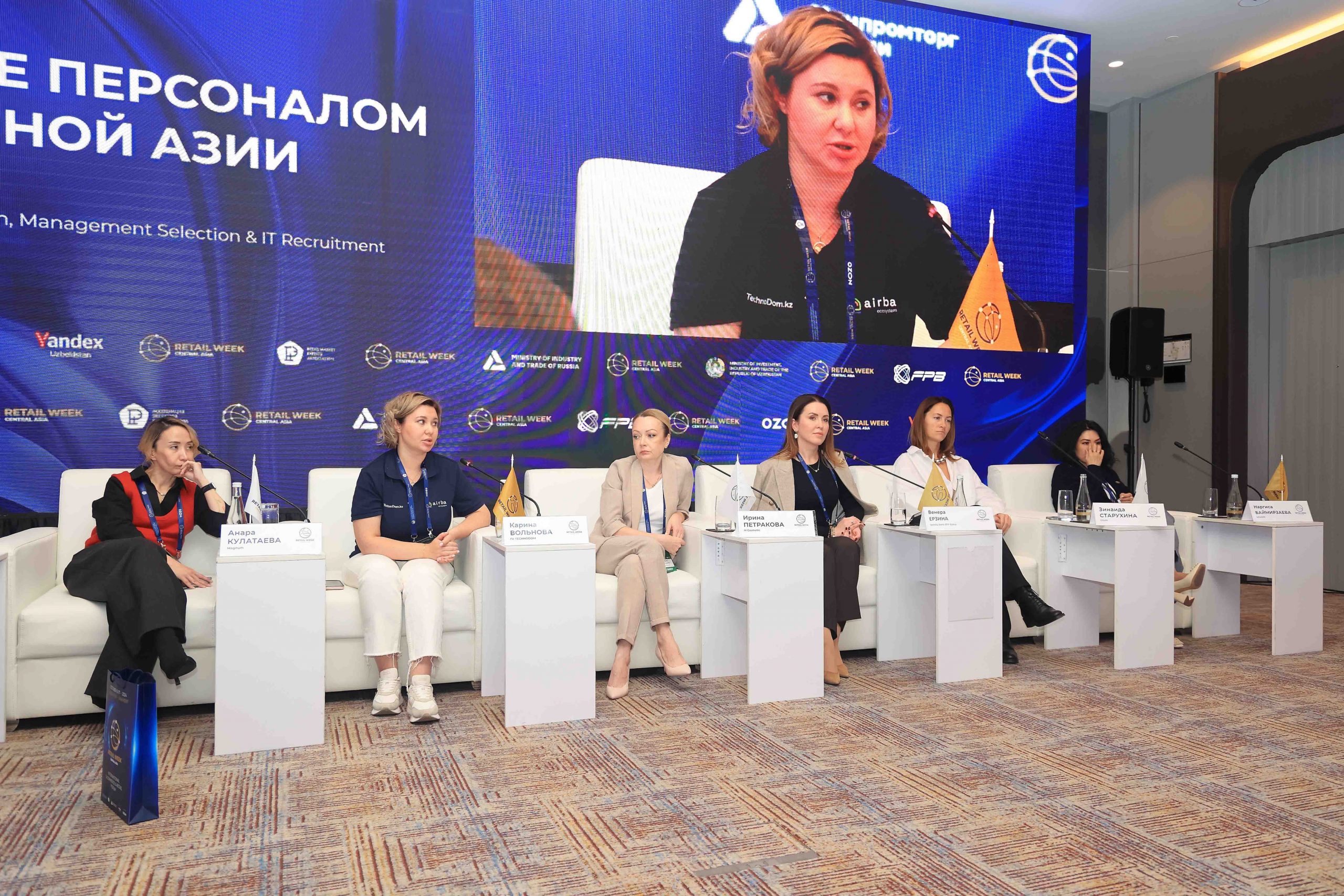How to manage personnel was discussed at the Retail Week Central Asia forum during the expert session ‘Personnel Management in Central Asia’, 17 October 2024 in Tashkent.
Personnel management is not people management. People in a company are managed by management: heads of subdivisions and departments. They give tasks and control their fulfilment. And HR is a centre of expertise focused on improving the company’s overall performance.
Zina Starukhina, HRD of the UZUM system, said that there is a great competition for IT specialists in the CIS fintech and e-com market. According to her, there are about 900,000 IT specialists working in the CIS, and there is an additional shortage of another 500,000-700,000 specialists. ‘There is a struggle going on. The average lifespan at one place is 2 years,’ the speaker notes. The reason is that each IT specialist has 5 offers on hand. In addition, in this sector, salaries are aggressively growing up to 15-17% per year. According to the expert, the fight for talent is going on every day, so it is important for such specialists to create EVP systems – conditions for attracting talent, to form a set of unique criteria that distinguish the company from other employers, to form an atmosphere inside, where you want to be.
Karina Volnova, HR Director at TECHNODOM Airba Ecosistem Group of Companies, asked what to bet on in the development of a company – on talent or on technology? What should we invest in talent or technology? There are companies that implement artificial intelligence technologies, robotisation, and this gives great results, as artificial intelligence is constantly developing. Other companies rely on talent and use artificial intelligence to develop staff. ‘We try to balance technology and talent in our company. We bring these stories together,’ the expert told.
Magzum Tolesh, co-founder and CEO of online service EasyTap, spoke about why it is effective to hire staff on a part-time basis. ‘Why is part-time staffing cool? Because it’s an opportunity for businesses to optimise their workload. Staff is needed when demand increases, the expert said, and is not needed when demand drops. According to him, Kazakhstan has a big staff shortage and ‘we help to find people quickly’. ‘Part-time staff is an opportunity to cover positions quickly,’ the expert summarised. At the same time, according to him, 30 per cent of those who came to work part-time in the company later move to a permanent job,’ the expert shared his experience.
Nargisa Baimirzaeva, Director of Transformation Projects at Ishonch, shared her experience of team transformation in her company. Before starting the process of staff transformation, the company conducted a staff survey, and focus groups were held where people expressed their thoughts. After that, the transformation tools were launched. The first one was a shift from long term to short term planning, this helped in keeping the focus on what the company was concentrating on in its operations. According to an expert, this helped to improve efficiency significantly, ‘It was possible to turn around a two-month plan by 75 per cent in two months.’ It gave people back the faith that they can achieve results, the expert noted. The second project is the creation of a process office. The third is working with people, and here the main question is: how to do it, who to start with, from the top or from the bottom? The company launched a succession programme and selected 20 second pilots with whom an external coach is working. And the fourth area is building communications in the company, which is one of the most difficult, the expert noted, because when a company grows, communication is lost: ‘It is the hardest thing to break through this wall.
